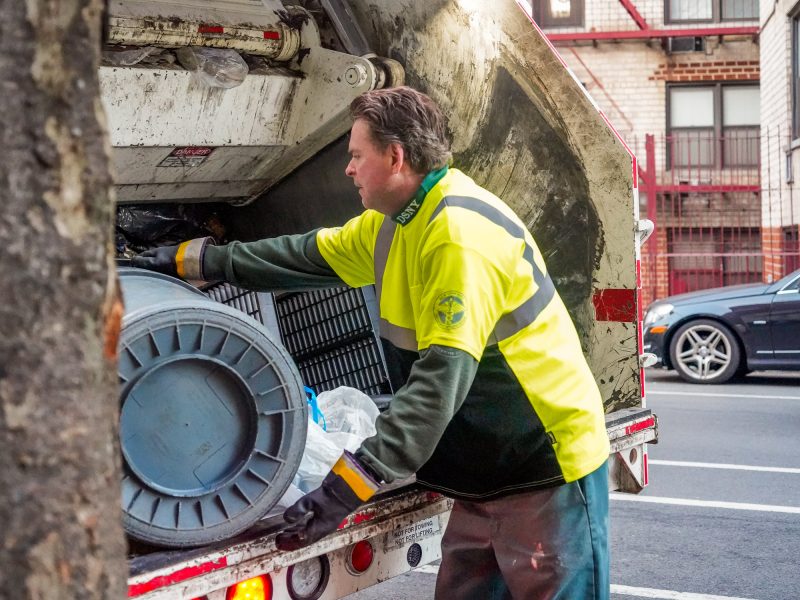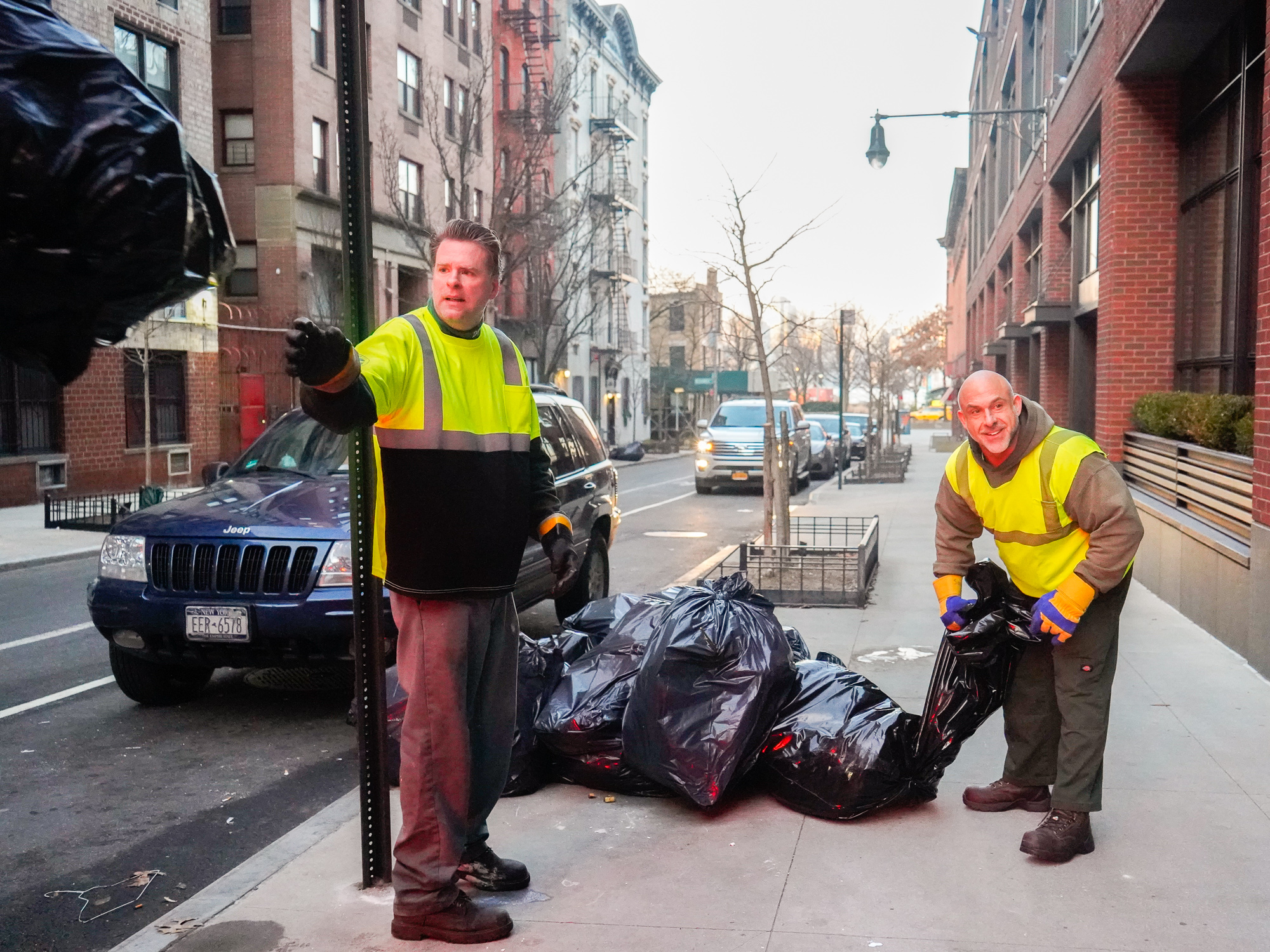- Sanitation workers have the fifth most dangerous job in America – and perhaps one of the most arduous – thanks to hazardous waste, dangerous equipment, and rats.
- We shadowed two sanitation workers in NYC – one of the filthiest cities in the US – early one morning to see what the job was like.
- These sanitation workers wake up at 3:30 a.m. and pick up trash from 6 a.m. to 2 p.m.
- We learned that while the work is loud, dirty, and there are many potentially fatal hazards of the job, the experience was largely peaceful.
- After five years on the job, the average salary for a sanitation worker is about $77,300, and after 22 years, sanitation workers are eligible for pension, according to the New York City Department of Sanitation.
- Sanitation workers must be very cautious when handling trash and the collection truck on New York City streets, but they also enjoy the simple pleasures of the job, like watching the city wake up each morning.
- Visit Business Insider’s homepage for more stories.
We arrived at the New York City Department of Sanitation (DSNY) at 5:30 a.m. on a Thursday.
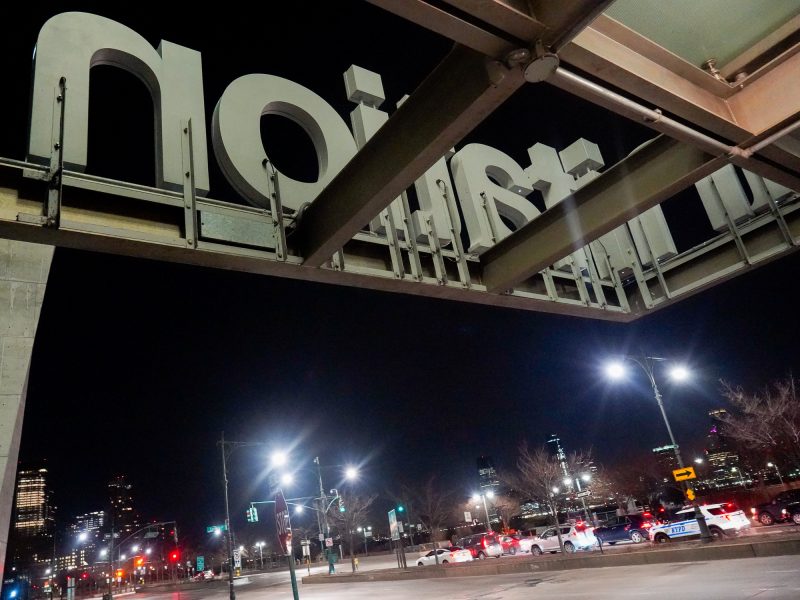
This is where sanitation workers meet each morning before their routes.
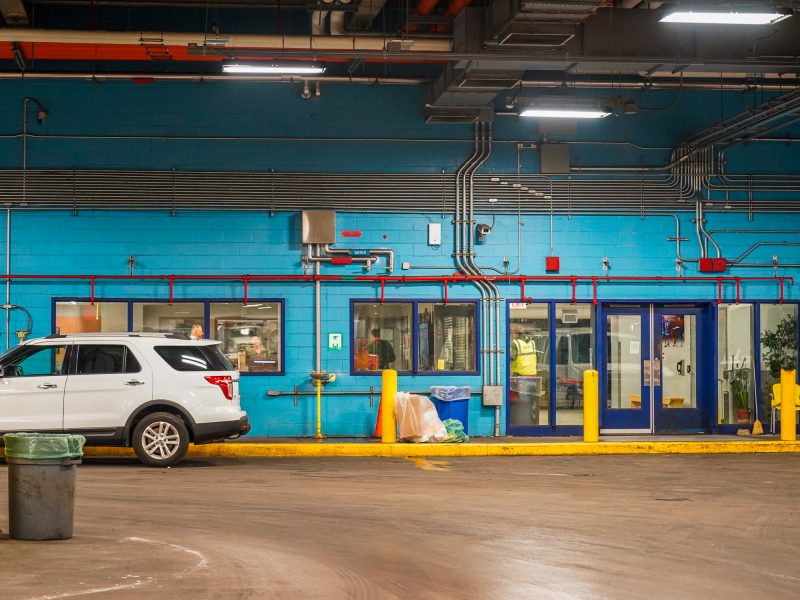
Workers in different garages take roll call, where they get assigned the route for the day. Supervisors also make announcements.
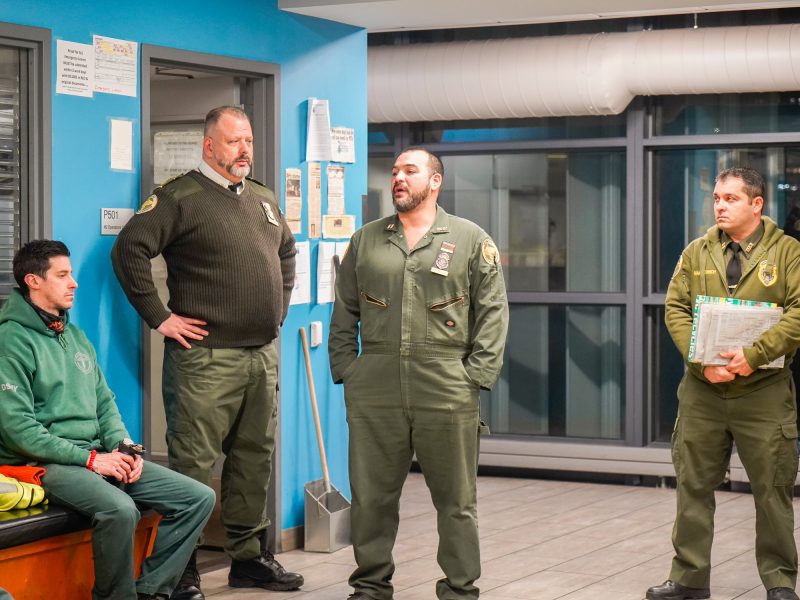
DSNY divides up the entire city into 59 districts, which separates the five boroughs into zones for cleaning and garbage and recycling collection.
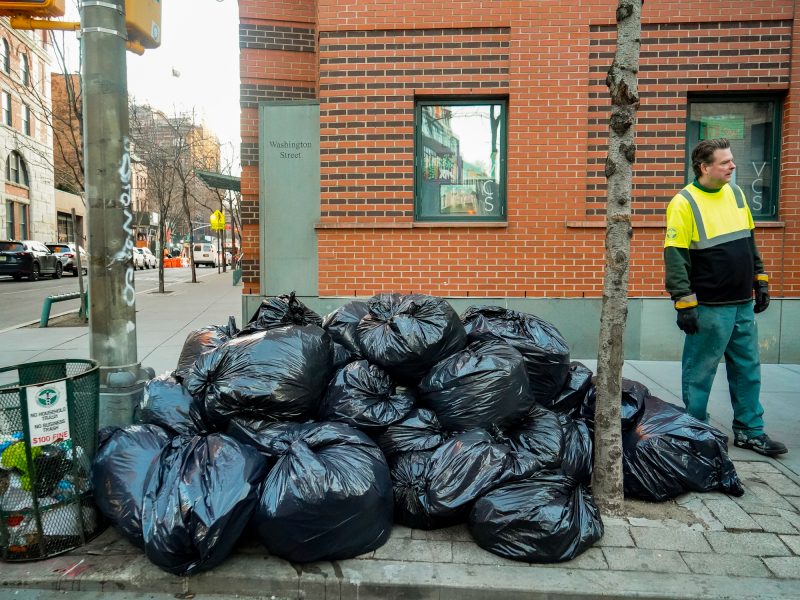
Source: DSNY
DSNY runs 7,400 truck routes a week across the city.
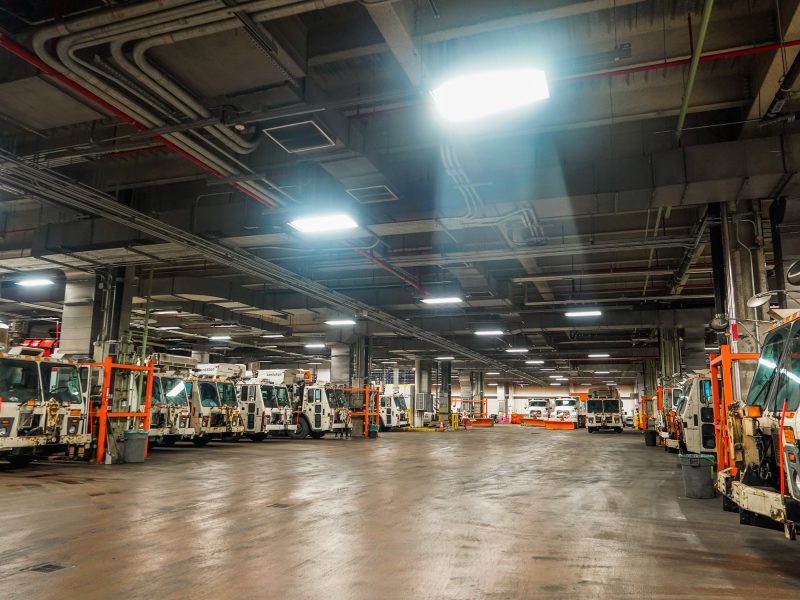
Source: DSNY
Sanitation workers must get to their garage sites by a little before 6 a.m. Many of them wake up at 3 or 4 a.m. to get dressed and make it to their garage on time.
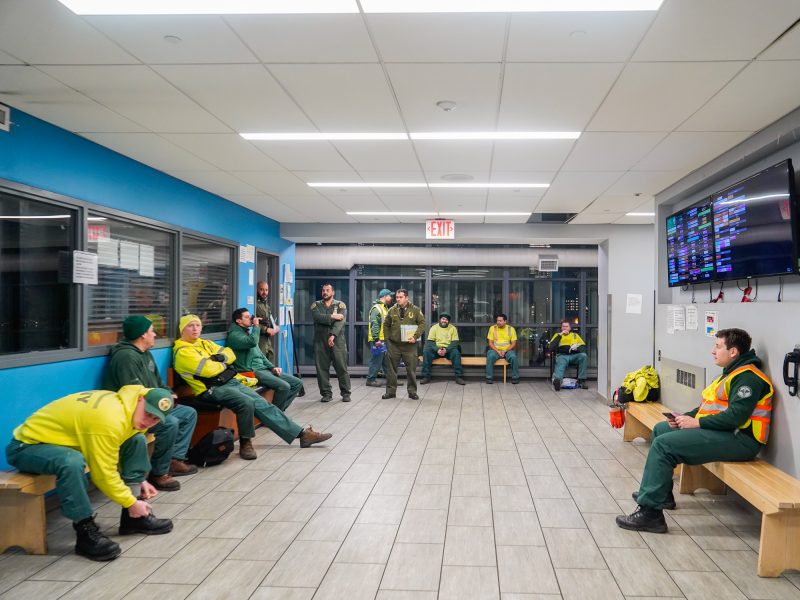
Source: DSNY
You must be 21-years-old when appointed to be a sanitation worker, but there’s no age cap so long as you can pass the physical exam.
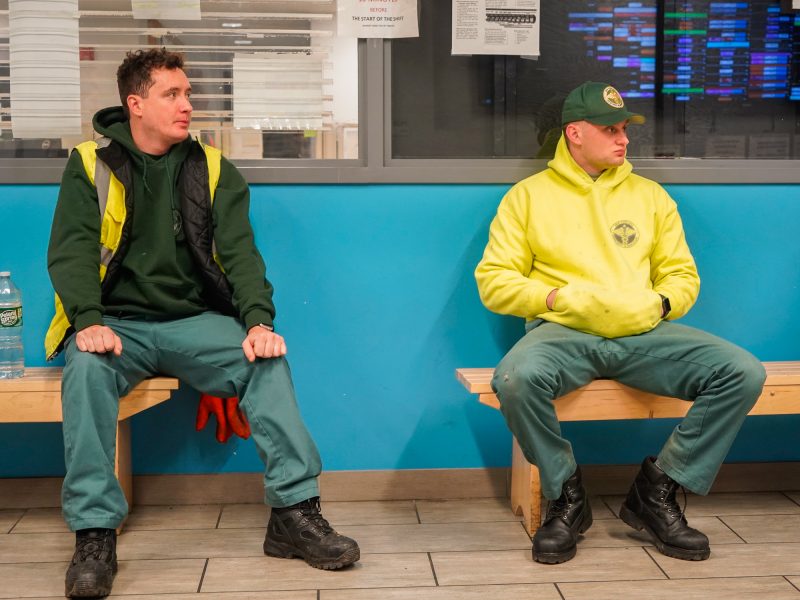
Source: DSNY
Sanitation workers — both collectors and supervisors — wear different shades of dark green uniforms with a reflective vest on top.
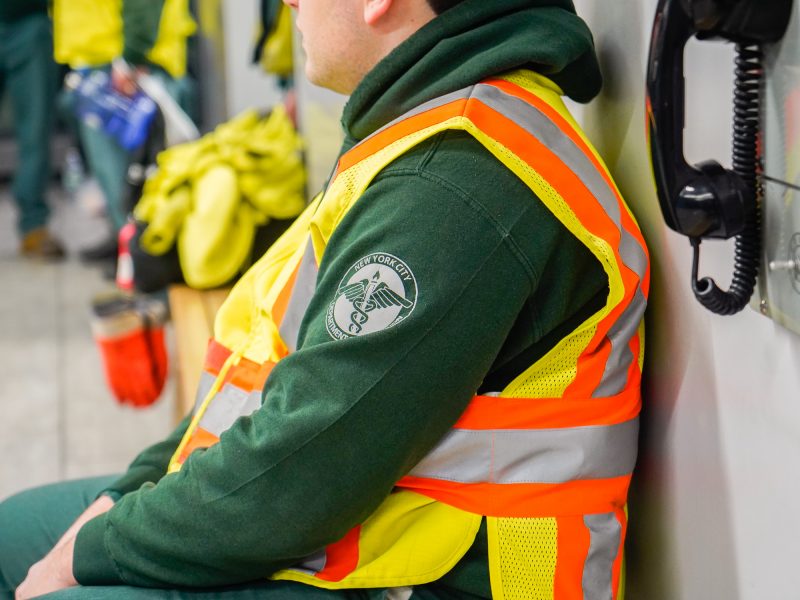
Source: DSNY
Most sanitation workers wear sturdy shoes without steel toes, which can sever your foot if run over by a car.
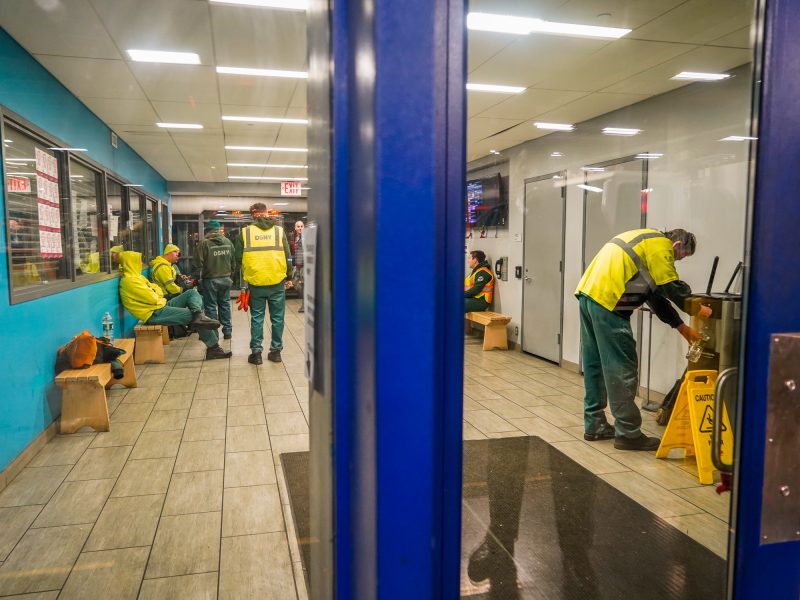
Source: DSNY
There are about 7,800 uniformed staff members within the sanitation department. It is the third-largest city agency after the fire and police departments.
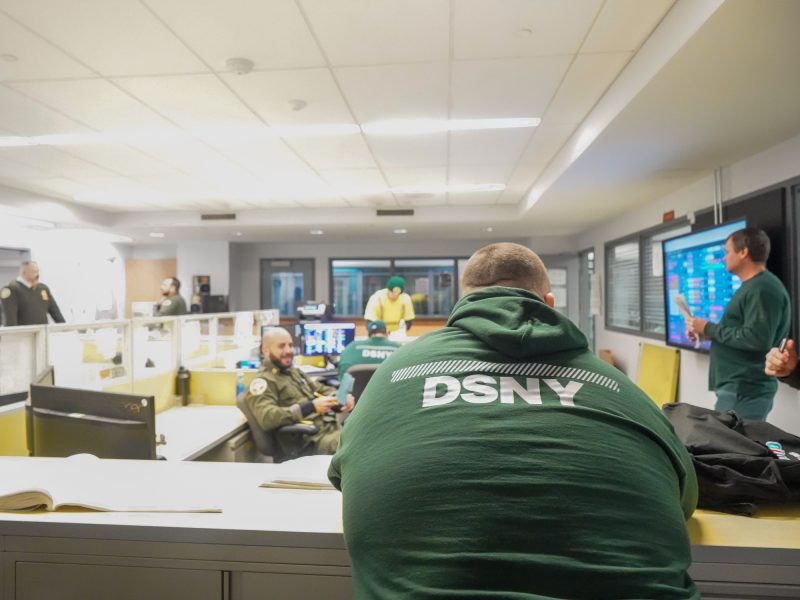
Source: DSNY
While we didn't see any women at the garage, there are currently 268 female uniformed staff members.
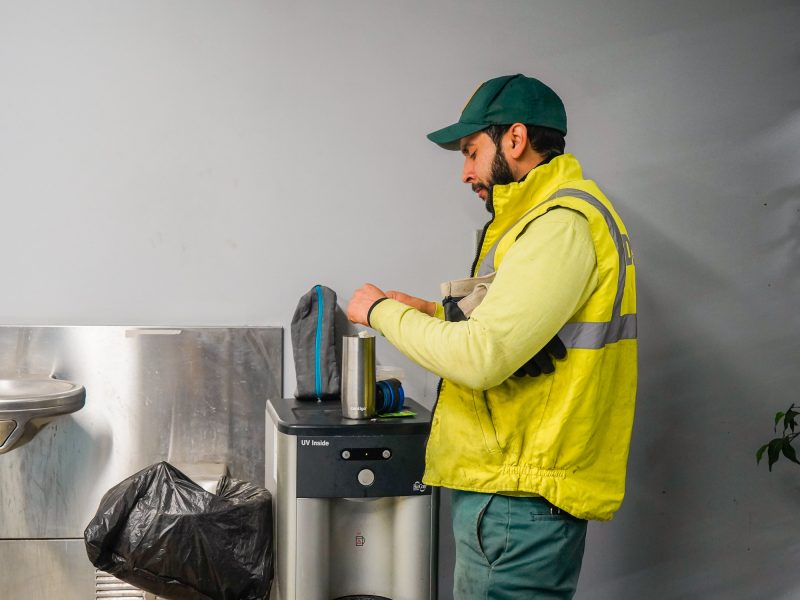
Source: DSNY
This includes Sanitation Workers, and ranking officers like Supervisors, Deputy Chiefs and above.
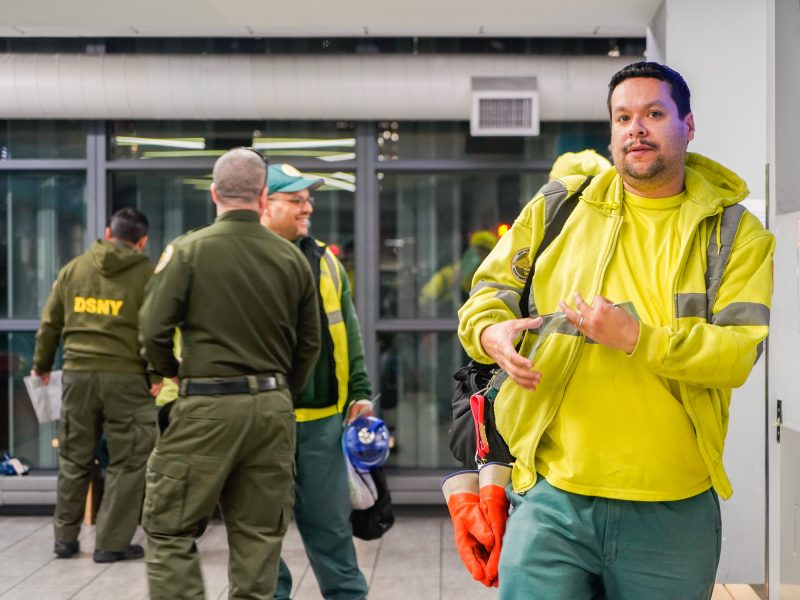
Source: DSNY
The two sanitation workers we followed for the day were Kevin Greenan and Mike Squiciari. Greenan had been on the job for about 20 years, and Squiciari for about 33 years.
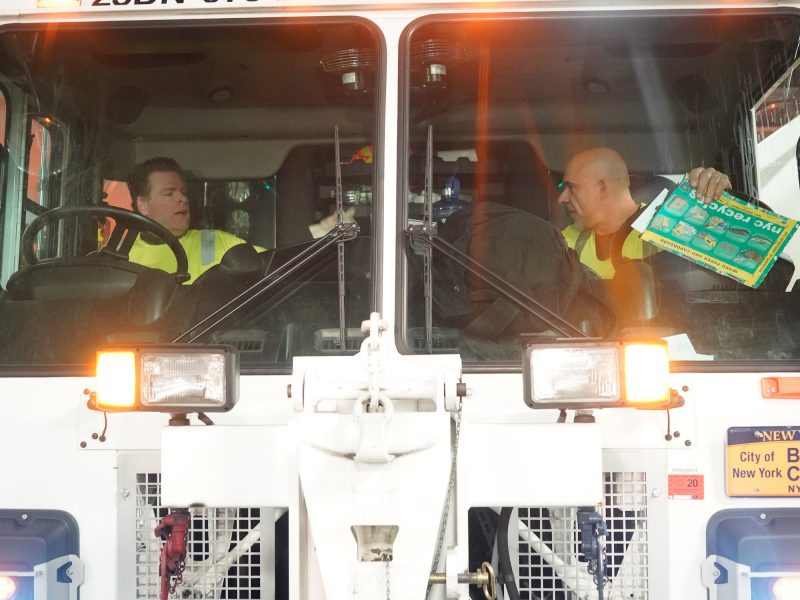
The two don't normally work together, but Squiciari's usual partner was out for the day. Since they have seniority, the two get more flexibility to pick the routes and schedules they want.
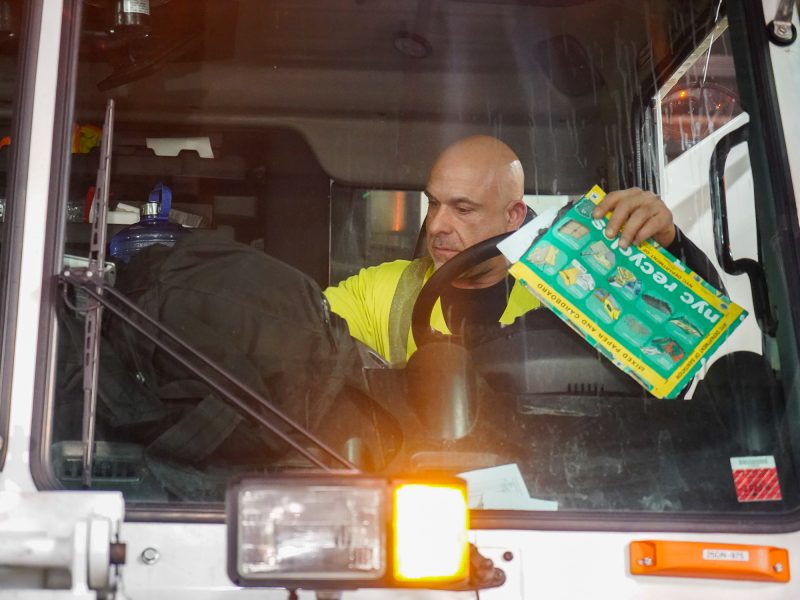
We began in the Spring Street Garage on the west side of Lower Manhattan, and our route included parts of Soho and Greenwich Village.
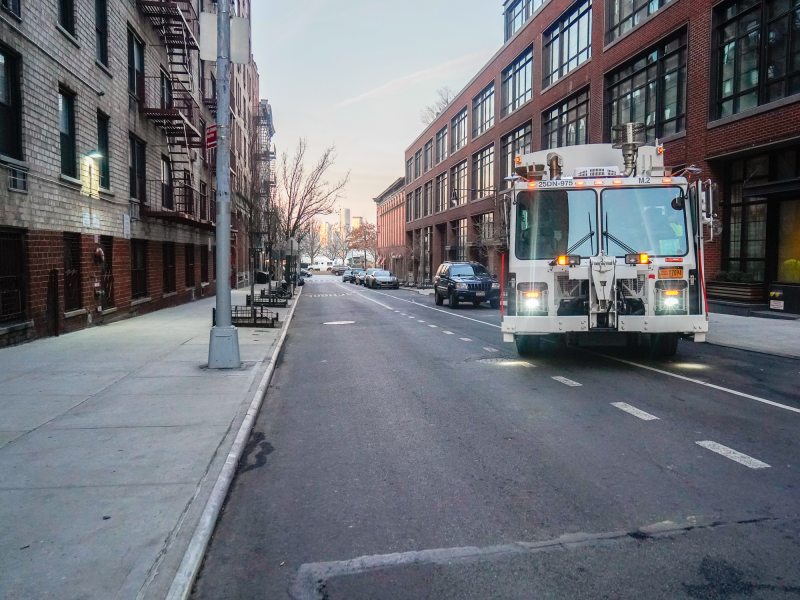
We drove behind the garbage truck alongside DSNY chief Keith Mellis for safety reasons. Chief Mellis oversees all five boroughs and began with the department as a sanitation worker in Harlem 33 years ago.
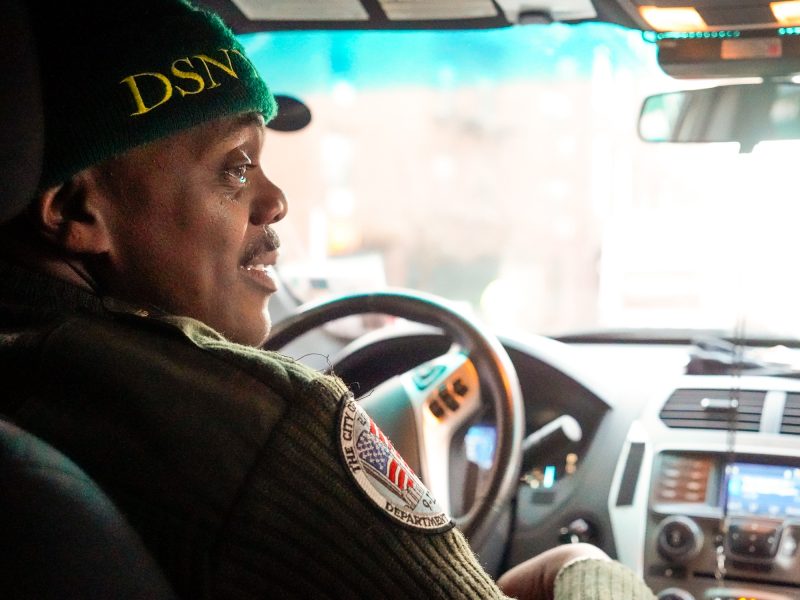
At the time we left for the job, it was pitch black outside, but we saw the sunrise as the day went on. Chief Mellis said one thing he loves about sanitation work is watching New York wake up.

DSNY picks up the trash of residents, schools, and non-profits. Restaurants and businesses must pay for private trash collection.
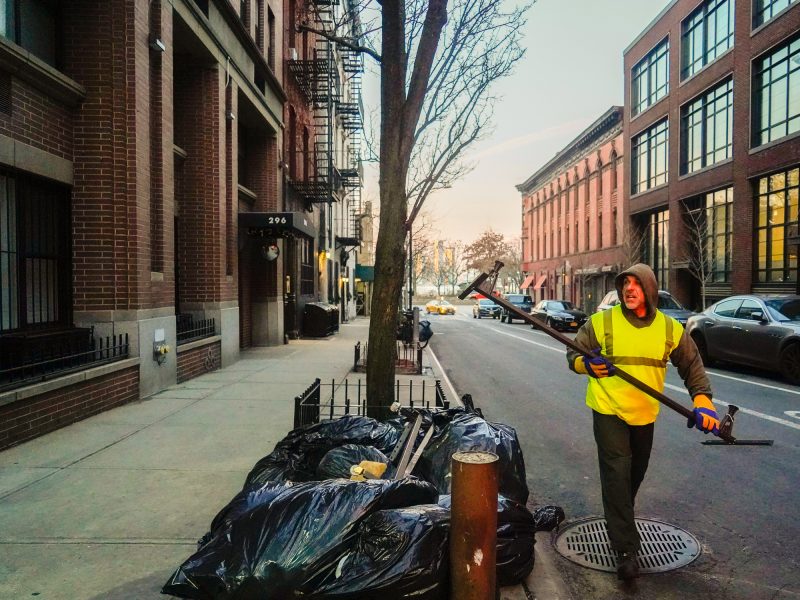
The metal that breaks down and pushes trash to the back of the vehicle is called a "hopper."
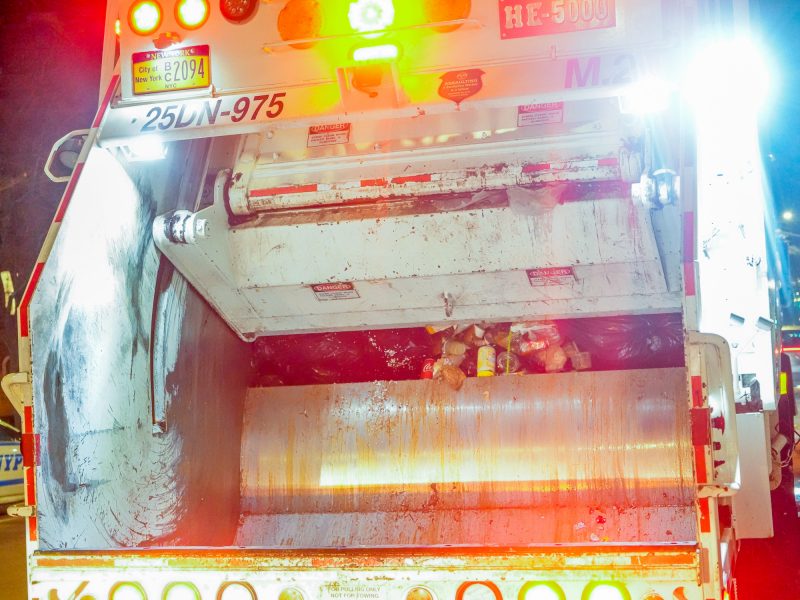
Hoppers can be dangerous as they break down garbage quickly, and trash can quickly get sprayed outward.
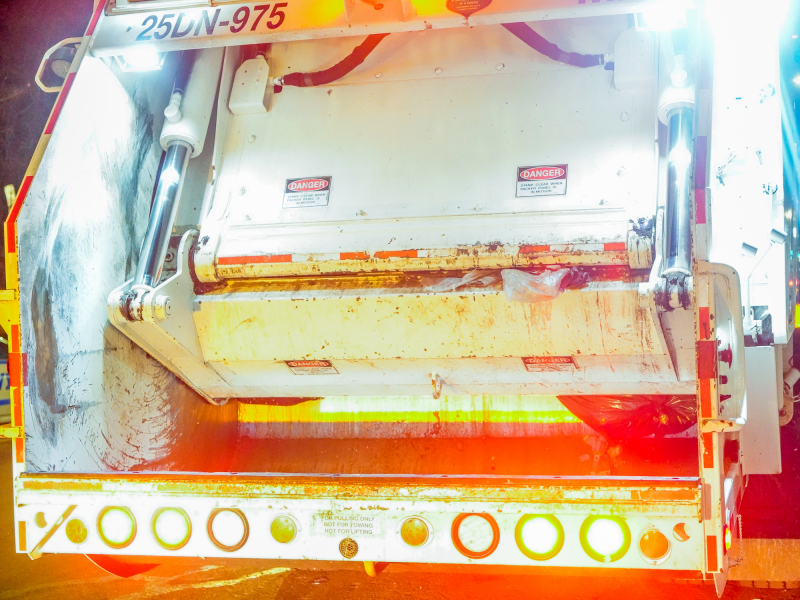
So sanitation workers must stand to the side of the hopper as they load trash into the vehicle.
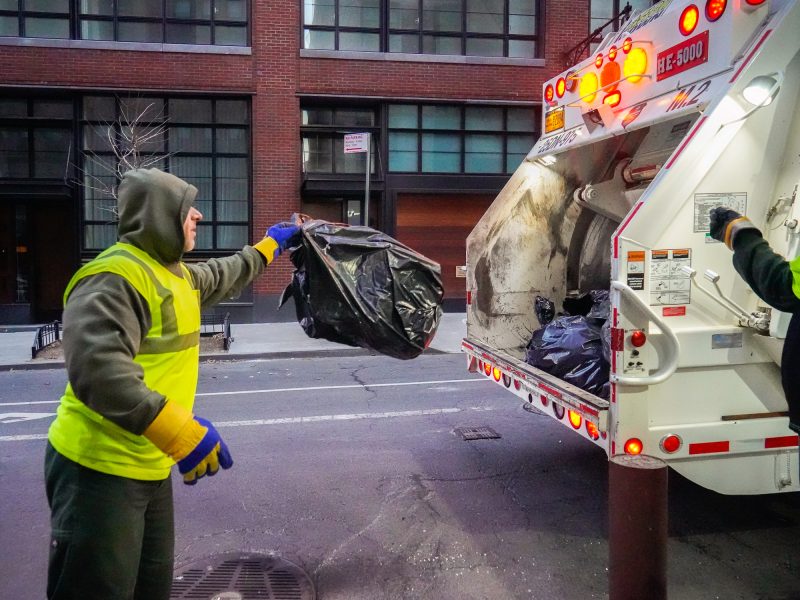
One sanitation worker in Brooklyn died after dumping trash that contained acid. The acid sprayed outward after it got sucked into the hopper and got on the sanitation worker's skin.
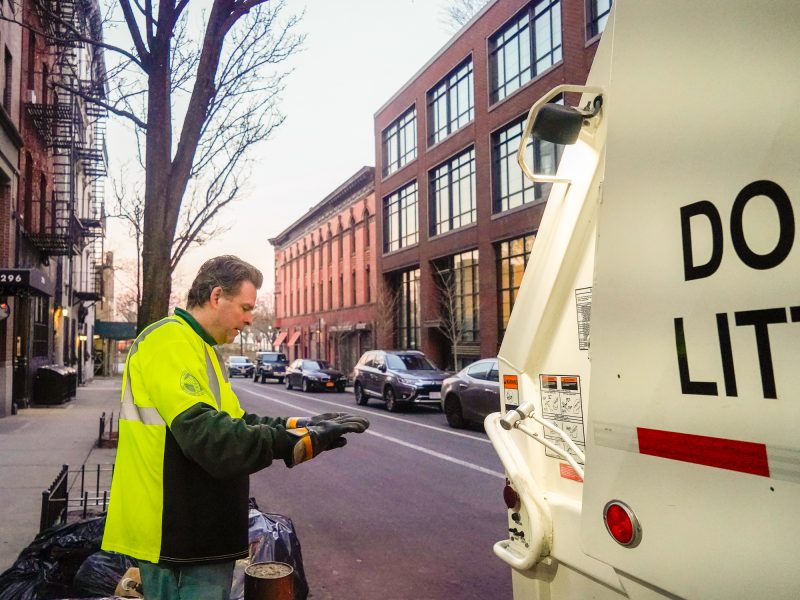
Source: The New York Times
Sanitation workers must pass a civil service exam — which includes both a written and physical portion — before getting hired.
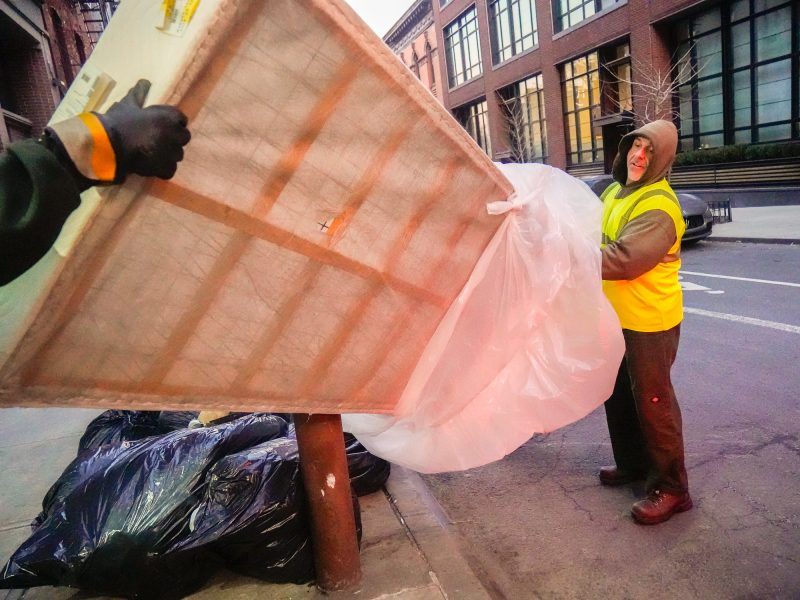
Squiciari, whose coworkers nicknamed him "Mikey Arms," is a bodybuilder and trainer. He says part of what allowed him to stay on the job for 33 years was his physical fitness and time spent in the gym.
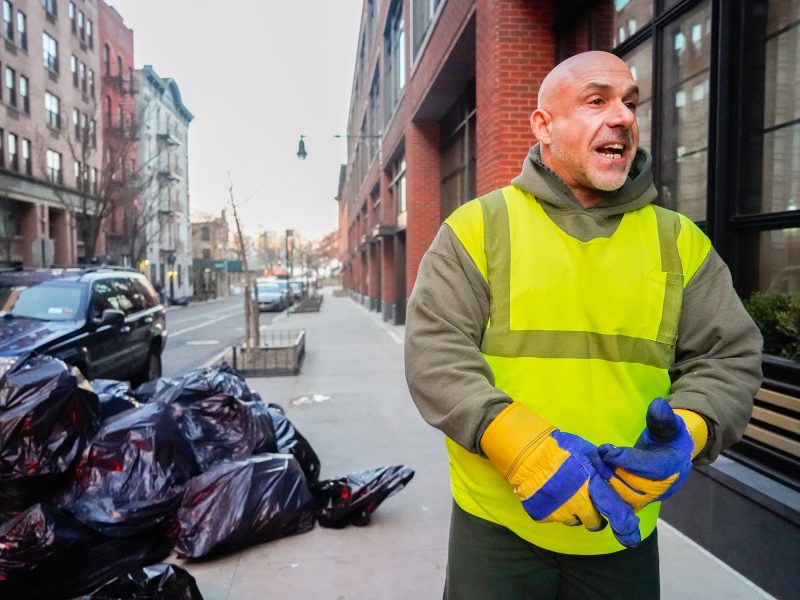
"If you plan on taking this job, try to be young and take care of your body," Squiciari told Business Insider. "Eat healthy and exercise. That's what I've been doing, and I've lasted 33 years doing this job in all different weather conditions. Thank God I feel great."
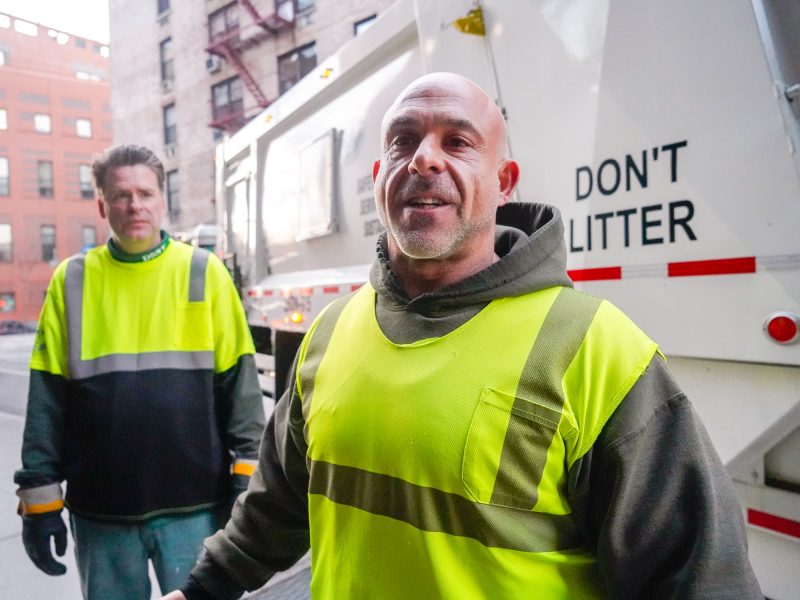
Greenan, meanwhile, plans on retiring soon because he'll be eligible for pension.
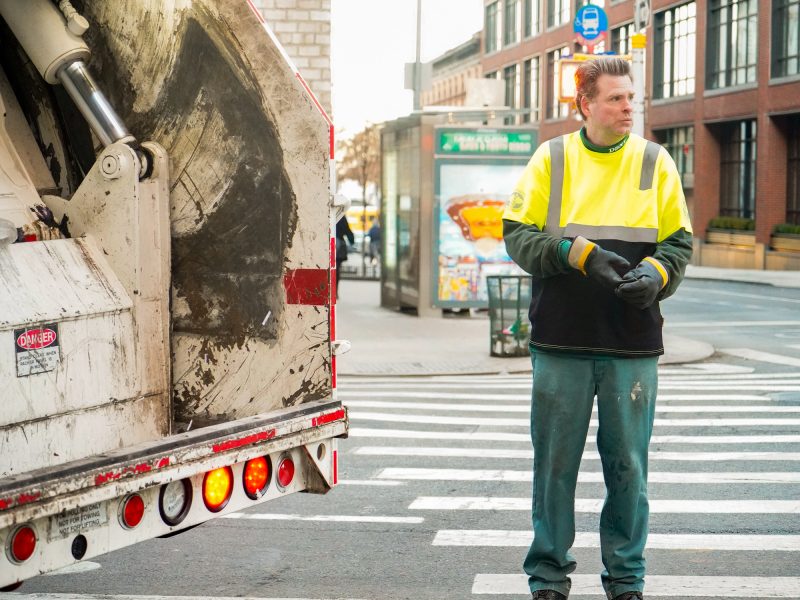
Sanitation workers hired before 2012 are eligible for pension after 20 years of service. Sanitation Workers hired after are eligible for pension after 22 years of service.
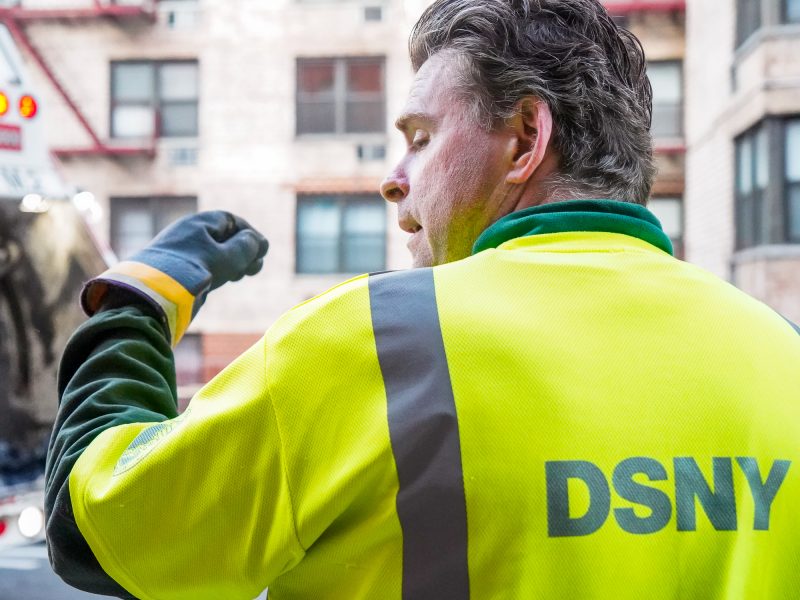
Source: DSNY
This isn't the only perk of the job. Squiciari and Greenan both find the early hours —which are from 6 a.m. to 2 p.m. — to be pretty ideal for their lifestyles.
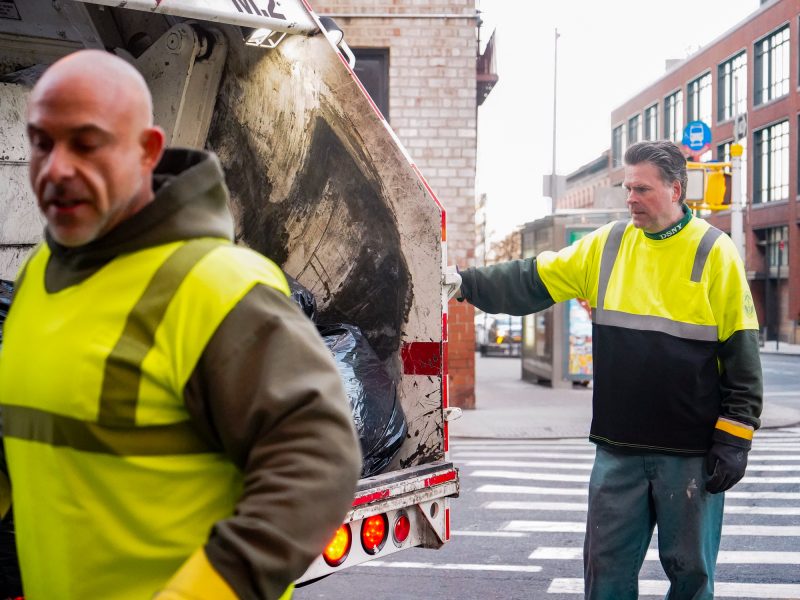
"I have two boys, and I was able to pick them up at school. I was probably the only father there," Squiciari told Business Insider. "And I can go to the gym after work and I'm still home by 5 p.m."
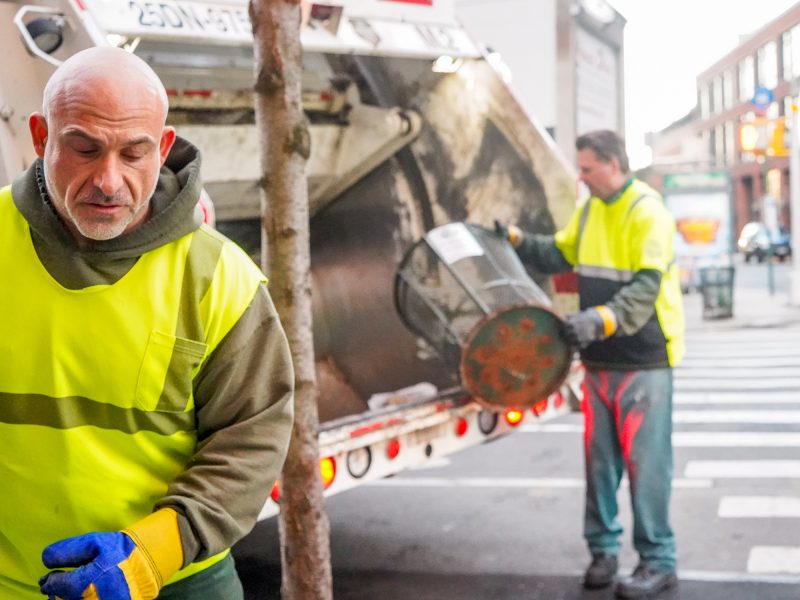
"Getting off at 2 o'clock in the summer, you can go to the beach," Greenan told Business Insider.
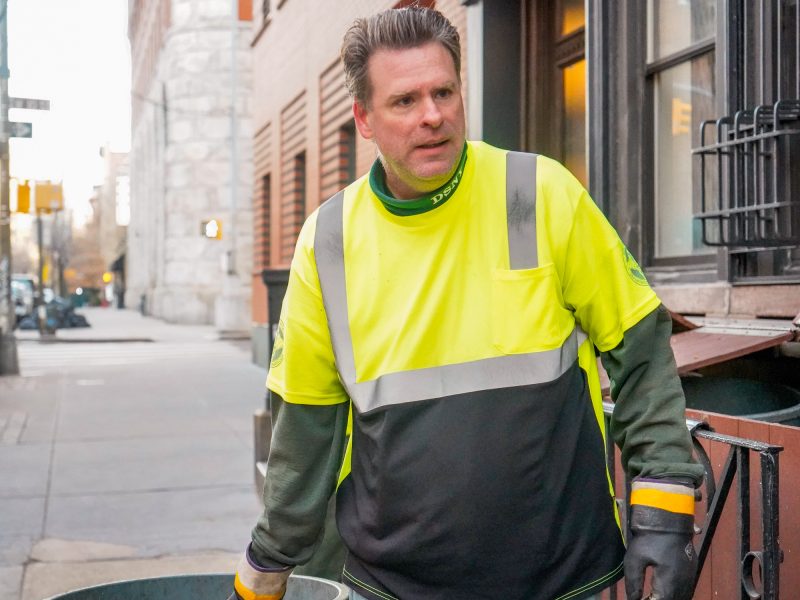
"The only hard part is getting up in the morning. When my alarm clock goes off I wanna throw it out the window," he continued.
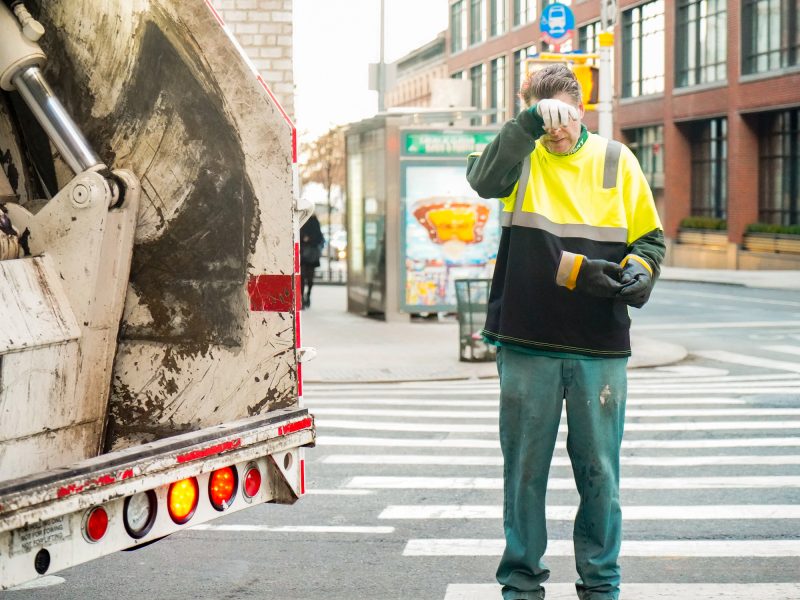
Greenan also enjoys the simple pleasures of the job. "I like to walk. A lot of guys get in the truck between each stop, but I just walk everywhere because I like it," he told Insider.
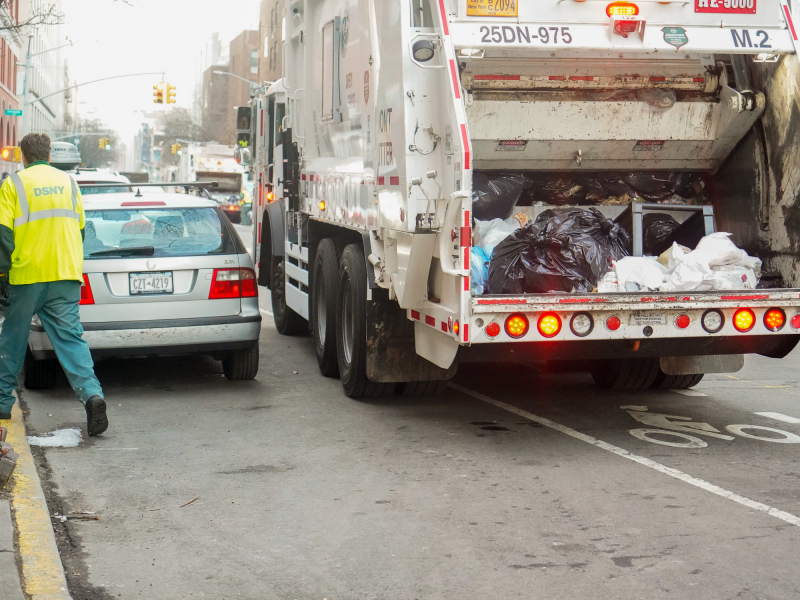
Greenan and Squiciari also get paid higher salaries because of their seniority.

The entry-level salary for a sanitation worker is about $37,600. It increases with time and after five years, the average salary is about $77,300.
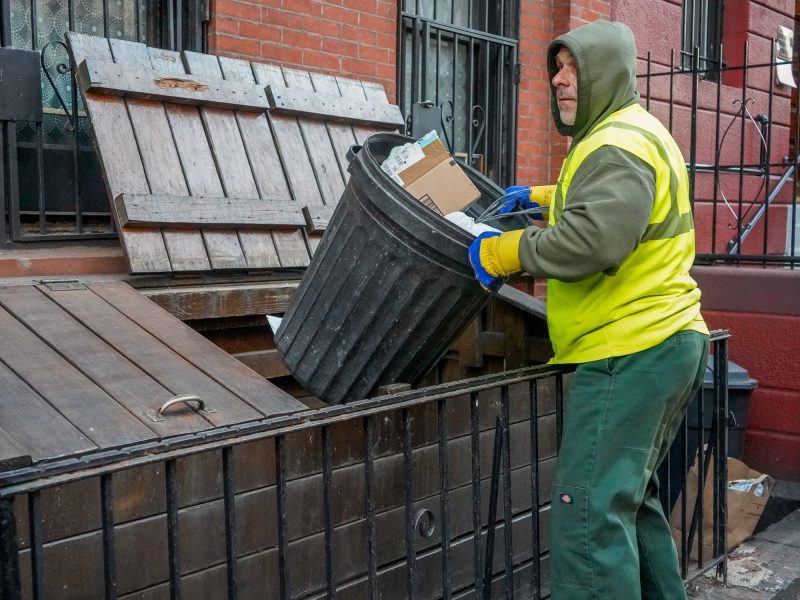
Source: DSNY
Chief Mellis and Squiciari had started with the sanitation department at the same time. They are two of just three members left from a start class of around 1,000 workers. Most workers leave after they can qualify for pension.
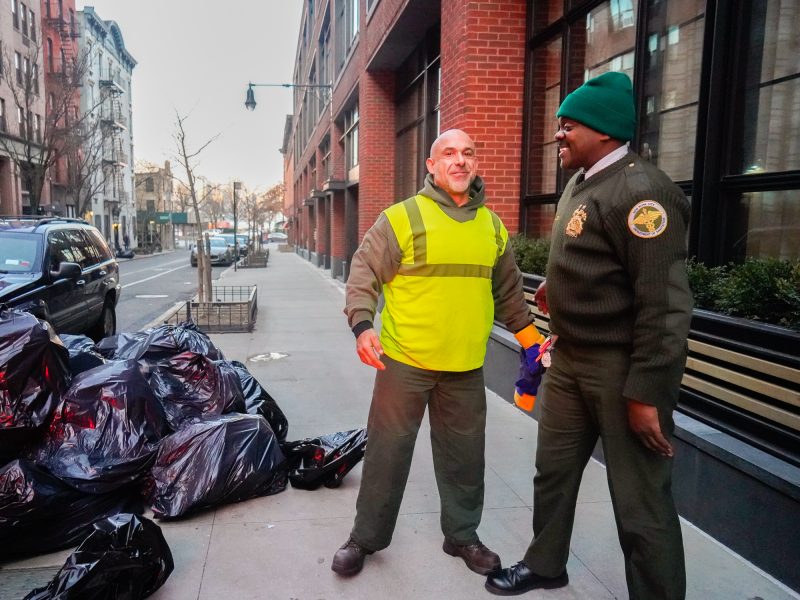
Source: DSNY
Squiciari, Greenan, and Chief Mellis say one of the best parts of being a sanitation worker is the camaraderie.
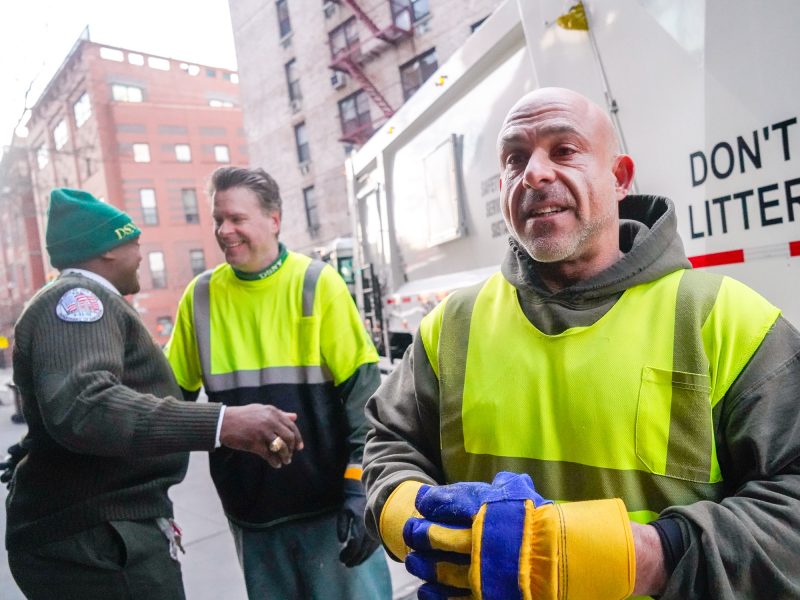
Sanitation workers spend a lot of time together, as shifts can sometimes be 12-hours long. During that time, they get to know each other like family, they said.
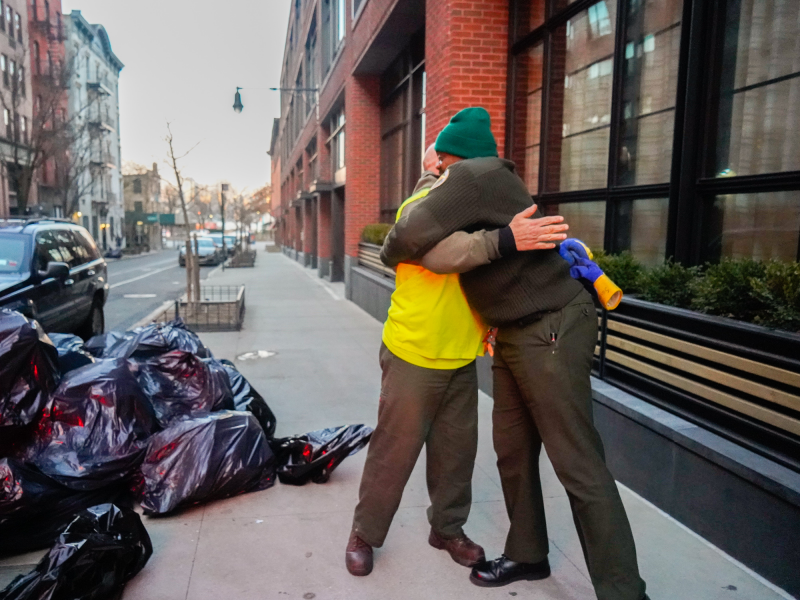
Squiciari said he still keeps in contact with a few old sanitation workers who have since retired, and many of them do meet-ups or come back for retirement parties.
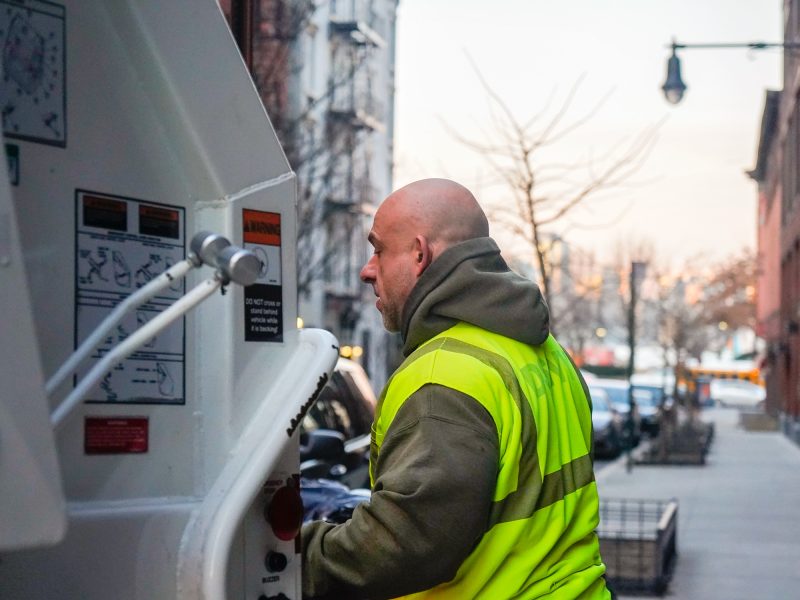
Another fun part of the job, they said, is getting to know the residents, supers, and store owners who live along their route. Greenan and Squiciari both recall watching kids on their routes grow up.
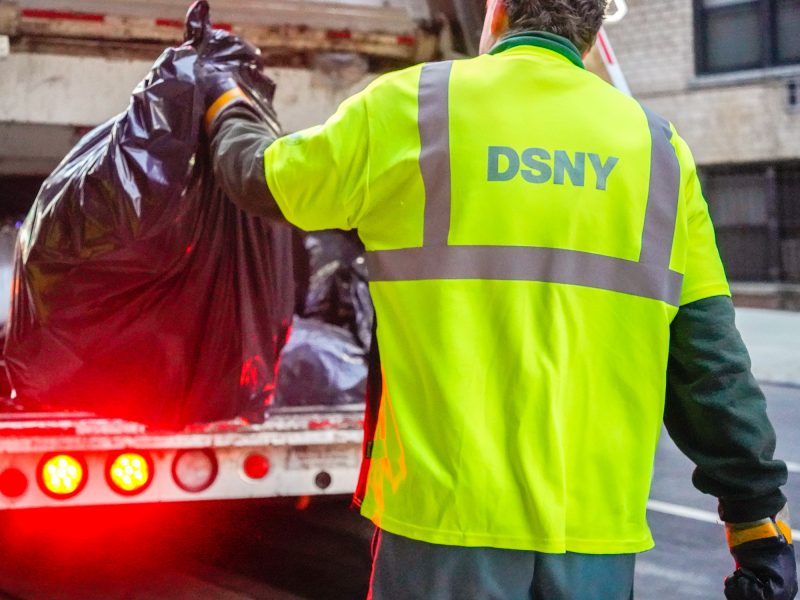
We saw Squiciari greet one of the supers who worked along the route.
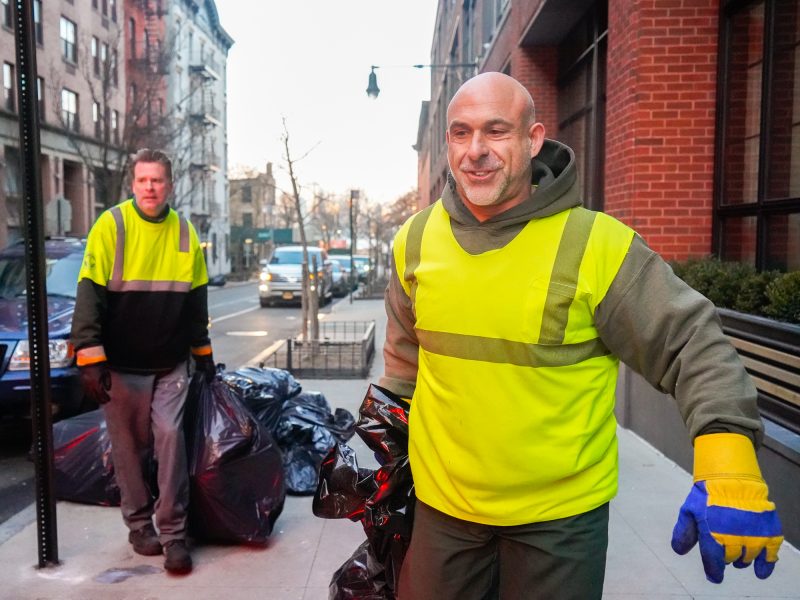
Squiciari and Greenan confirmed rats greet them along the route too. Our least favorite part of the day was seeing the rats.
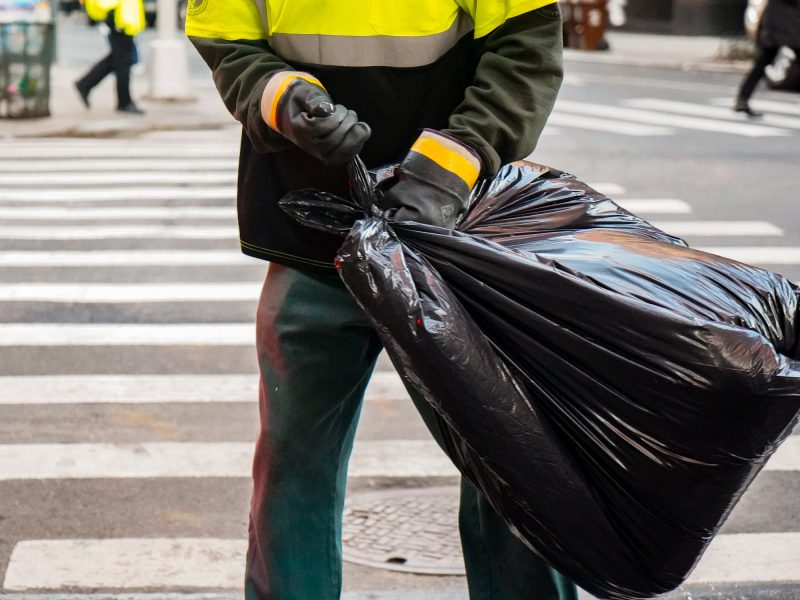
They come out in early mornings and at nights, and if the area is restaurant-dense, entire families surround the garbage.
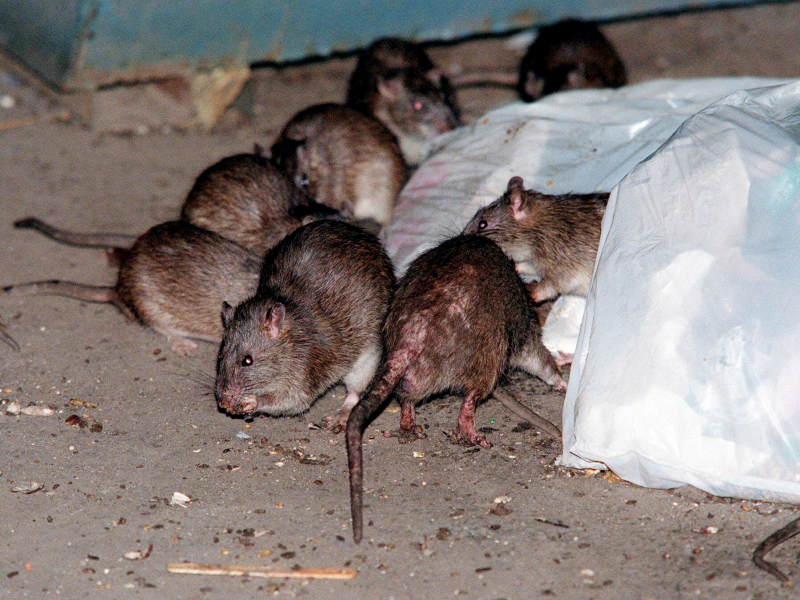
An important part of the job is keeping an eye out for bikers.

Since Mayor Michael Bloomberg instated bike lanes in much of the city during his 2002-2013 tenure, sanitation workers have to pay extra attention to their blind spots so that they won't run into bikers.
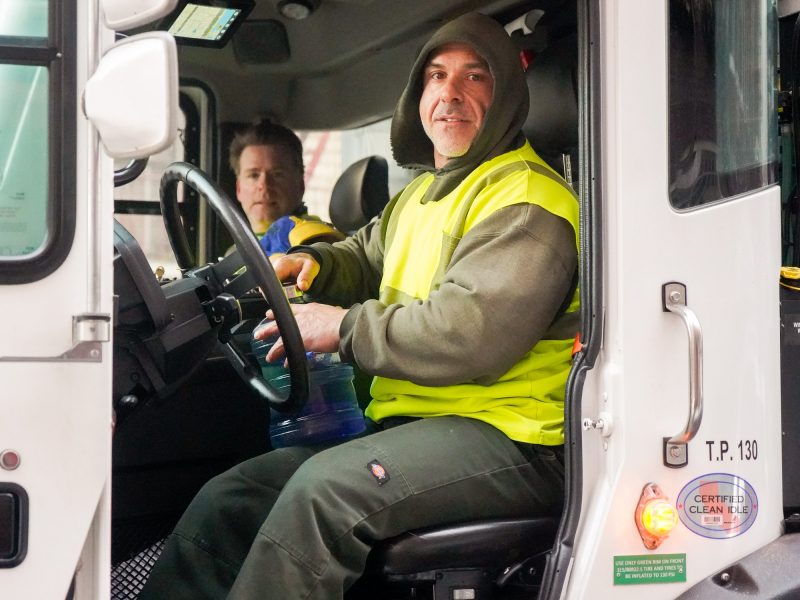
Source: DSNY
Increased technology has aided sanitation workers over the years. All current DSNY collection trucks and salt spreaders have GPS trackers, and many have cameras in the back to give drivers better visibility.
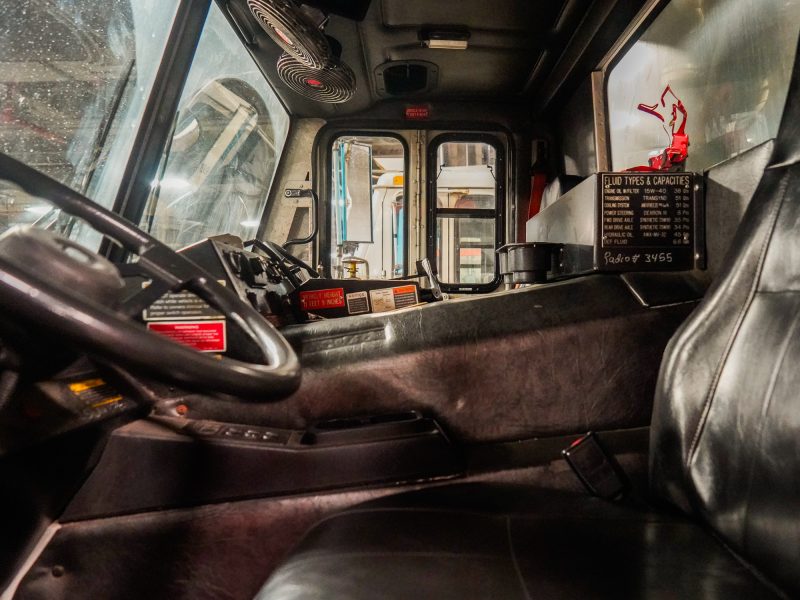
Source: DSNY
DSNY also operates one of the cleanest garbage collection fleets in the country.
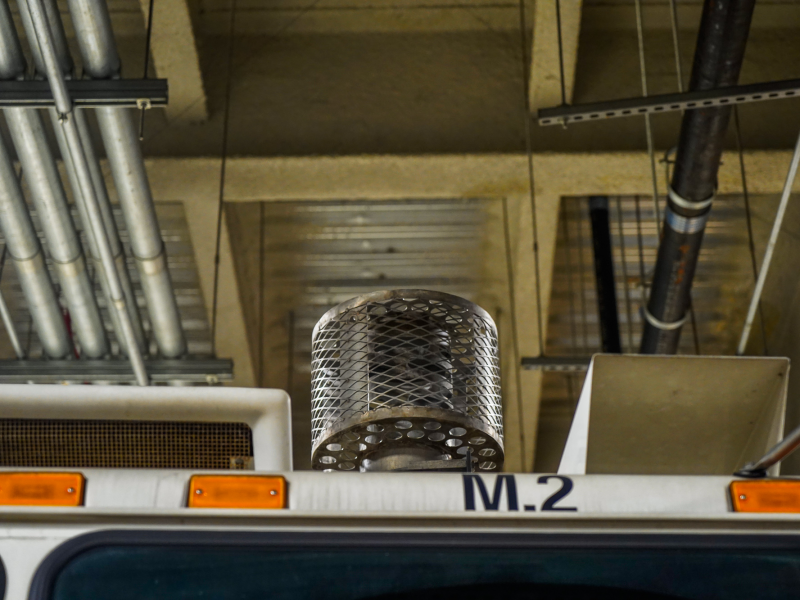
Source: DSNY, Waste Dive
DSNY reduced its use of unleaded fuel by nearly half since 2005. Today, the entire diesel fleet runs on biodiesel fuel.
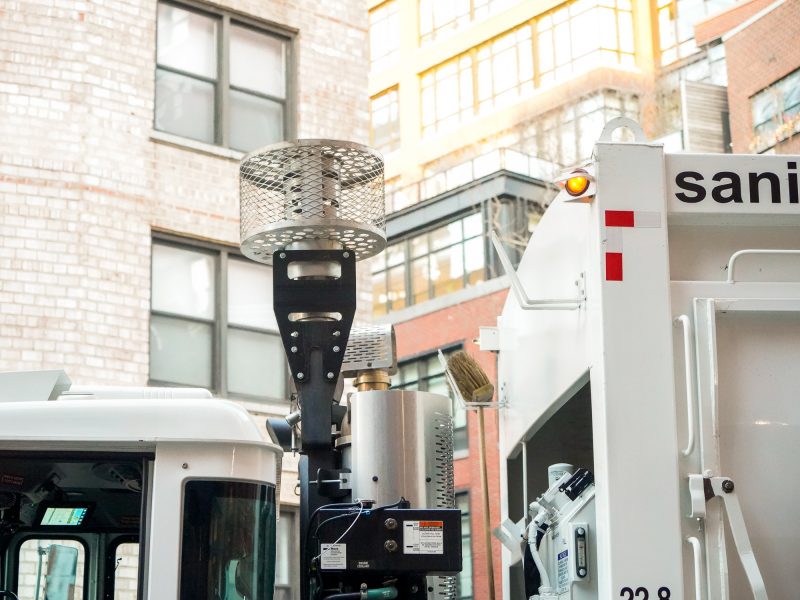
Source: DSNY
The amount of trash on the roads vary by month. May tends to be one of the busiest months, due to spring cleaning.
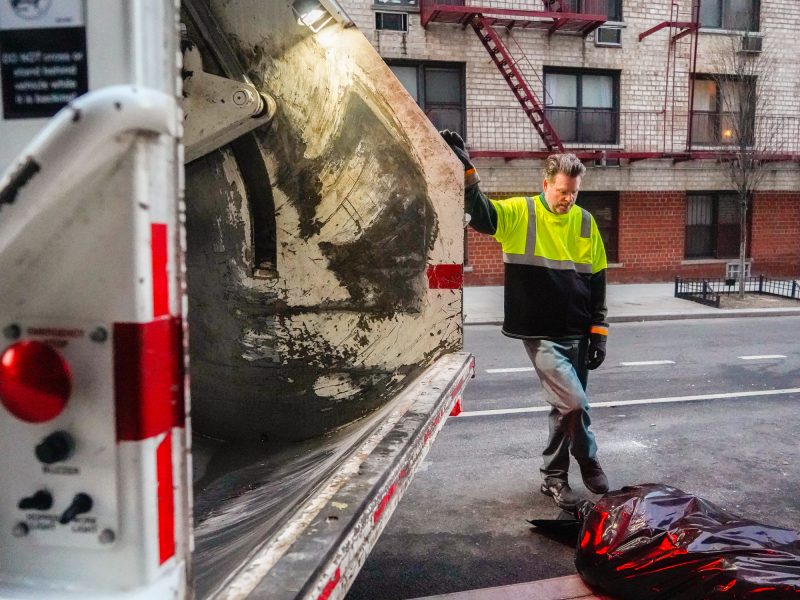
Source: DSNY
And the summer tends to be heavier for trash collecting than the winter.
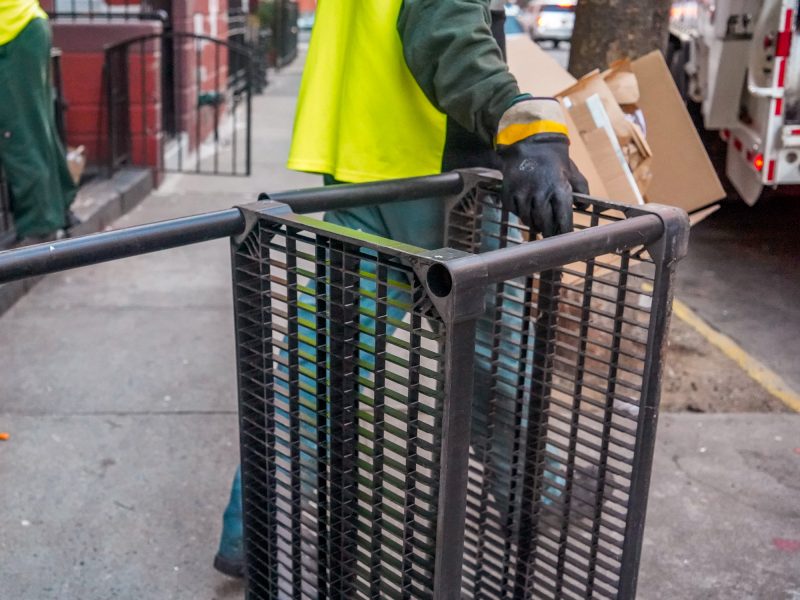
Source: DSNY
Monday and Tuesday have the most trucks on the road, as the sanitation department operates less on weekends.
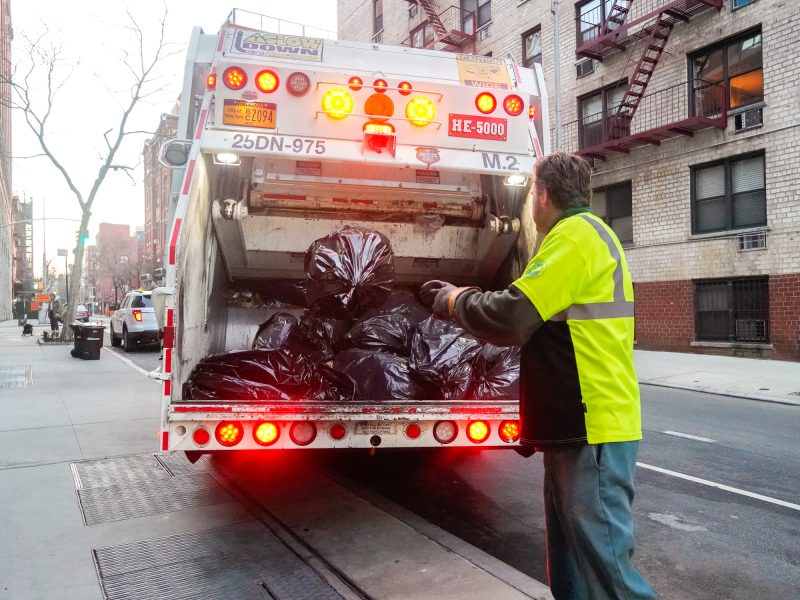
Source: DSNY
In 20 years of sanitation work, Greenan said one thing stays the same.
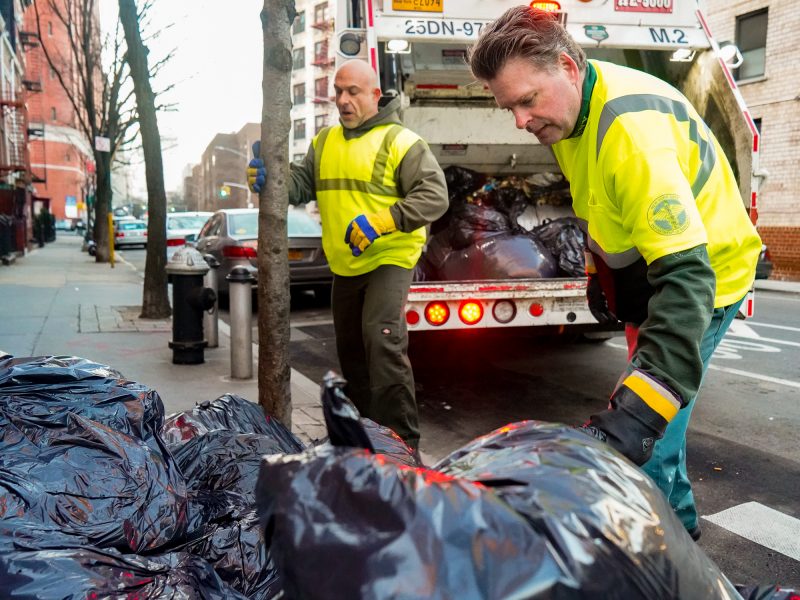
"Garbage never ends. All those baskets you saw me do — if you drive around right now, they're probably half full already," he told Business Insider.
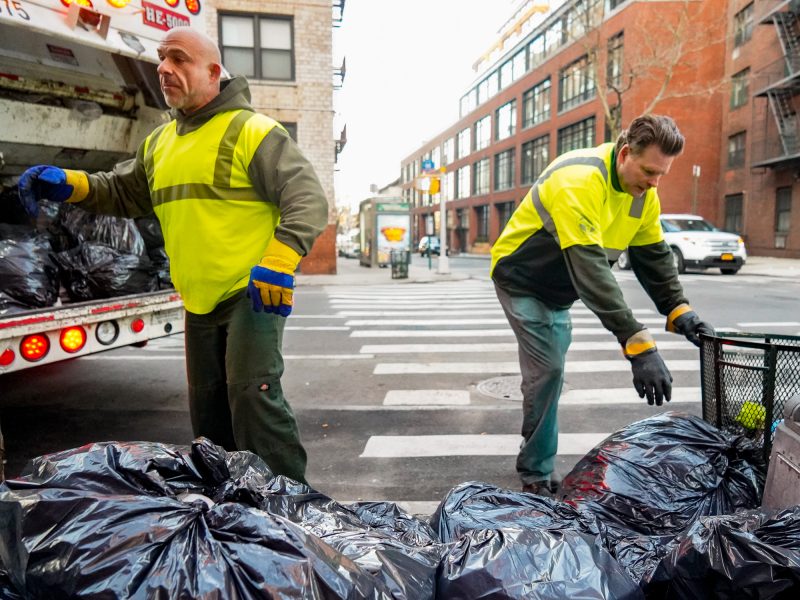
"But I don't mind," he says, "more work for me."
